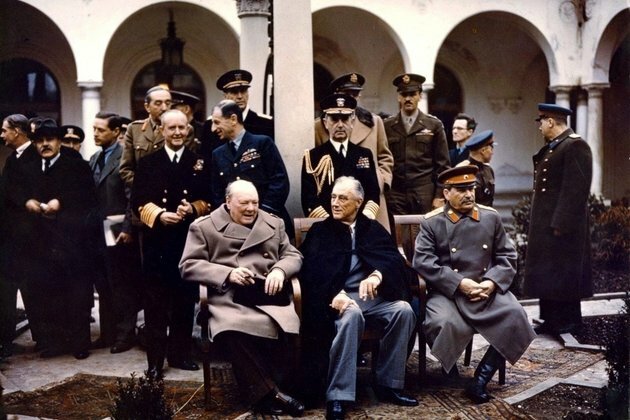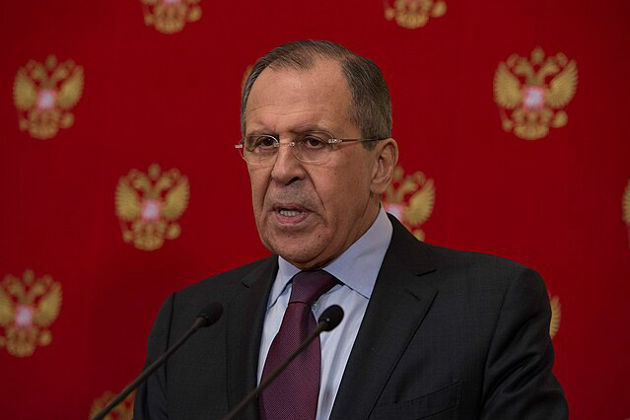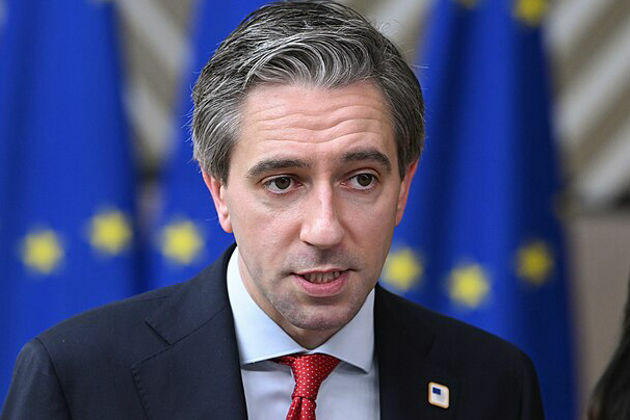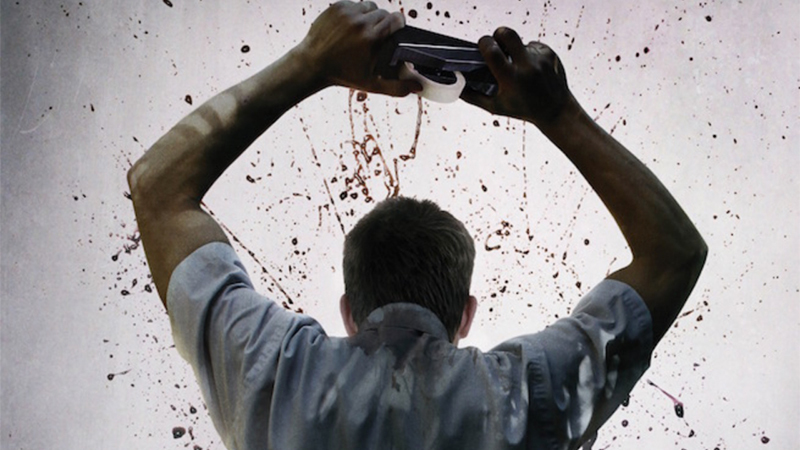Who won the war? We did, says everyone
The Conversation
14 Aug 2019, 19:56 GMT+10

Ask any of the few remaining World War II veterans what they did during the war and you're likely to get a humble answer. But ask the person on the street how important their country's contribution to the war effort was and you'll probably hear something far less modest. A new study suggests people from Germany, Russia, the UK and the US on average all think their own country shouldered more than half the burden of winning World War II.
Our national collective memories seem to be deceiving us, and this is part of a far more general pattern. Aside from those veterans who have no desire to revel in the horrors of war, we may have a general psychological tendency to believe our contributions are more significant than they really are.
You can see this in even the most mundane of tasks. Unloading the dishwasher can be a perennial source of family irritation. I suspect that I'm doing more than my fair share. The trouble is that so does everybody else. Each of us can think: "The sheer injustice! I'm overworked and under-appreciated."
But we can't all be right. This strange magnification of our own efforts seems to be ubiquitous. In business, sport or entertainment, it's all too easy for each participant to think that their own special stardust is the real reason their company, team or show was a hit.
It works for nations, too. A study last year, led by US memory researcher Henry Roediger III, asked people from 35 countries for the percentage contribution their own nation has made to world history. A dispassionate judge would, of course, assign percentages that add up to no more than 100% (and, indeed, considerably less, given the 160 or so countries left out). In fact, the self-rating percentages add up to over 1,000%, with citizens of India, Russia and the UK each suspecting on average that their own nations had more than half the responsibility for world progress.
A sceptic might note that "contributing to world history" is a rather nebulous idea, which each nation can interpret to its advantage. (The Italians, at 40%, might focus on the Romans and the Renaissance, for example.) But what about our responsibility for specific world events? The latest study from Roediger's lab addresses the question of national contributions to World War II.
The researchers surveyed people from eight former Allied countries (Australia, Canada, China, France, New Zealand, Russia/USSR, the UK and the US) and three former Axis powers (Germany, Italy and Japan). As might be expected, people from the winning Allied side ranked their own countries highly, and the average percentage responses added up to 309%. Citizens of the UK, US and Russia all believed their countries had contributed more than 50% of the war effort and were more than 50% responsible for victory.
You might suspect that the losing Axis powers, whose historical record is inextricably tied to the immeasurable human suffering of the war, might not be so proud. As former US president John F Kennedy said (echoing the Roman historian Tacitus): "Victory has a hundred fathers and defeat is an orphan." Perhaps the results for the Allied countries just reflect a general human tendency to claim credit for positive achievements. Yet citizens of the three Axis powers also over-claim shares of the war effort (totalling 140%). Rather than minimising their own contribution, even defeated nations seem to overstate their role.
Why? The simplest explanation is that we piece together answers to questions, of whatever kind, by weaving together whatever relevant snippets of information we can bring to mind. And the snippets of information that come to mind will depend on the information we've been exposed to through our education and cultural environment. Citizens of each nation learn a lot more about their country's own war effort than those of other countries. These "home nation" memories spring to mind, and a biased evaluation is the inevitable result.
So there may not be inherent "psychological nationalism" in play here. And nothing special about collective, rather than individual, memory either. We simply improvise answers, perhaps as honestly as possible, based on what our memory provides - and our memory, inevitably, magnifies our own (or our nation's) efforts.
How do you calculate real responsibility?
A note of caution is in order. Assigning responsibilities for past events baffles not just everyday citizens, but academic philosophers. Imagine a whodunit in which two hopeful murderers put lethal doses of cyanide into Lady Fotherington's coffee. Each might say: "It's not my fault - she would have died anyway." Is each only "half" to blame, and hence due a reduced sentence? Or are they both 100% culpable? This poisoning is a simple matter compared with the tangled causes of military victory and defeat. So it is not entirely clear what even counts as over- or under-estimating our responsibilities because responsibilities are so difficult to assess.
Still, the tendency to overplay our own and our nation's role in just about anything seems all too plausible. We see history through a magnifying glass that is pointing directly at ourselves. We learn the most about the story of our own nation. So our home nation's efforts and contributions inevitably spring readily to mind (military and civilian deaths, key battles, advances in technology and so on). The efforts and contributions of other nations are sensed more dimly, and often not at all.
And the magnifying glass over our efforts is pervasive in daily life. I can find myself thinking irritably, as I unload the dishwasher, "Well, I don't even remember the last time you did this!" But of course not. Not because you didn't do it, but because I wasn't there.
Author: Nick Chater - Professor of Behavioural Science, Warwick Business School, University of Warwick 
 Share
Share
 Tweet
Tweet
 Share
Share
 Flip
Flip
 Email
Email
Watch latest videos
Subscribe and Follow
Get a daily dose of Irish Sun news through our daily email, its complimentary and keeps you fully up to date with world and business news as well.
News RELEASES
Publish news of your business, community or sports group, personnel appointments, major event and more by submitting a news release to Irish Sun.
More InformationInternational
SectionMoscow removes Taliban from banned list, grants official status
MOSCOW, Russia: This week, Russia became the first country to officially recognize the Taliban as the government of Afghanistan since...
Netanyahu vows 'No Hamas' in postwar Gaza amid peace talks
CAIRO, Egypt: This week, both Hamas and Israel shared their views ahead of expected peace talks about a new U.S.-backed ceasefire plan....
US sends message by publicizing visa ban on UK punk-rap band
WASHINGTON, D.C.: The Trump administration has made public a visa decision that would usually be kept private. It did this to send...
Tragedy in Spain: Diogo Jota and his brother die in car accident
MADRID, Spain: Liverpool footballer Diogo Jota and his younger brother, André Silva, have died in a car accident in Spain. Spanish...
Early heatwave grips Europe, leaving 8 dead and nations on alert
LONDON, U.K.: An unrelenting heatwave sweeping across Europe has pushed early summer temperatures to historic highs, triggering deadly...
U.S. military, China, Russia in Space race
President Donald Trump's plans to build a space-based Golden Dome missile defense shield have drawn immediate criticism from China,...
Europe
SectionIreland High Court hears of crisis in special needs school admissions
DUBLIN, Ireland: The High Court has heard that some parents of children with special needs may be forced to give up their jobs to care...
Early heatwave grips Europe, leaving 8 dead and nations on alert
LONDON, U.K.: An unrelenting heatwave sweeping across Europe has pushed early summer temperatures to historic highs, triggering deadly...
Ireland’s Deputy PM calls for swift US-Ireland trade agreement
DUBLIN, Ireland: Tánaiste Simon Harris has called on the United States to use every hour to reach a zero-for-zero tariff agreement...
Dublin Bus accused of disability discrimination by blind passenger
DUBLIN, Ireland: A blind woman from Dublin says she was hurt while getting off a bus because the driver refused to pull in close to...
Nurses in Ireland sound alarm over growing hospital overcrowding
DUBLIN, Ireland: The Irish Nurses and Midwives Organisation (INMO) has warned that there could be a serious trolley crisis this summer...
Turkey, France battle wildfires amid early Europe heatwave
ISTANBUL/PARIS/BRUSSELS: As searing temperatures blanket much of Europe, wildfires are erupting and evacuation orders are being issued...












